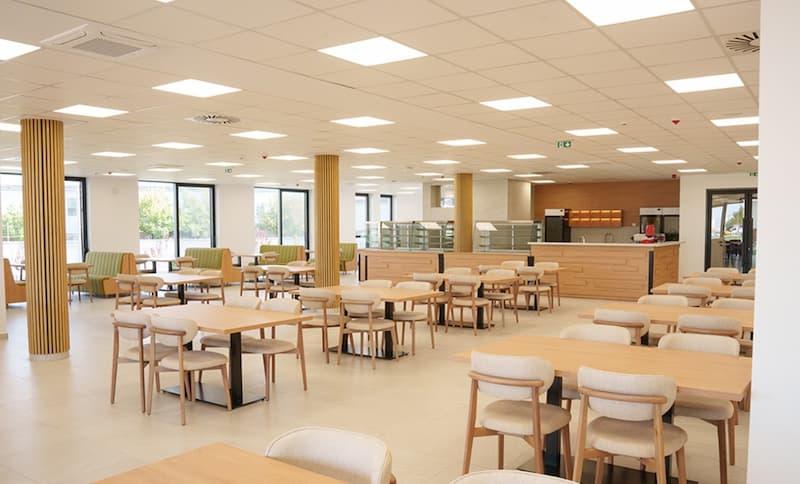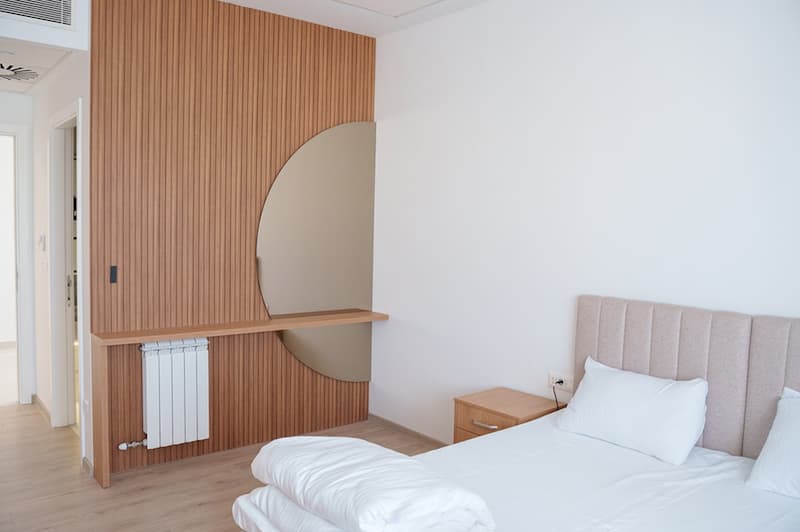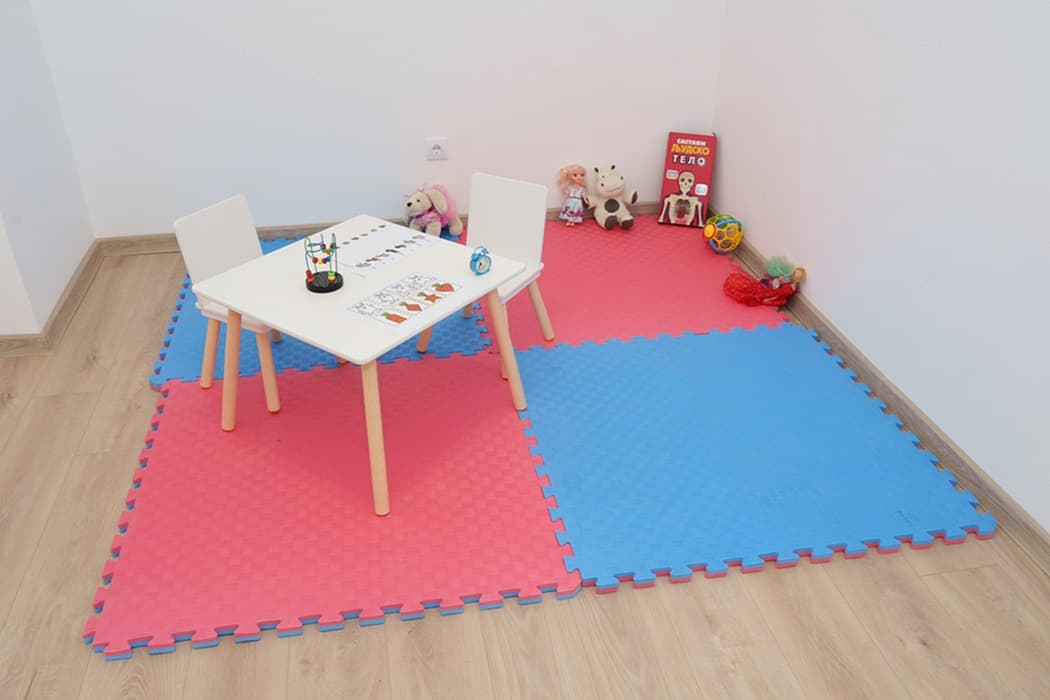Stem cell therapy for autism spectrum disorder is emerging as a promising option for families exploring different treatment paths. Imagine a child becoming more at ease with eye contact, more engaged in conversation, or better able to handle sensory triggers—just some of the possibilities reported by families. For those seeking alternatives to conventional therapies, stem cells are not a cure for autism but an additional option to consider in the journey toward a fuller, more connected life.
What is Autism?
The complex neurodevelopmental condition known as autism, or ASD, influences a person’s ability to communicate, interact socially, and repeat behaviors. Generally, symptoms of autism appear within the early years of a child’s life, mostly before the age of three, and may last a lifetime. Given that it’s a spectrum, a child may have varying needs for support and different capabilities.
What Are the Symptoms of Autism?
Here are key characteristics of autism, though not all of them:
- A person with autism might have difficulty in both verbal and non-verbal communications. This typically includes an inability to understand social and facial cues, inability to maintain eye contact, or engaging in typical give-and-take conversations.
- Many people on the autism spectrum have restrictive or repetitive patterns of behavior or interests. This can range from making repetitive sentences, following strict routines, or having strong interest in detailed parts of topics.
- People with autism often exhibit both hyper- and hypo- sensitivity to all different kinds of sensory inputs, such as sounds, lights, and textures. Such issues render their usual environment uncomfortable to stay in.

Autism varies widely in how it presents, with some individuals experiencing significant challenges, while others may have average or even above-average abilities. For example, some people on the spectrum excel in areas requiring strong reasoning skills, like math or art, yet still face difficulties in social interactions.
What Are the Causes of Autism?
A combination of both genetic and environmental factors influences ASD. Following is a summary of some facts about the probable causes of autism spectrum disorder.
Genetic Factors
- Studies claim that 40 percent to 80 percent of the risk for developing ASD can be attributed to genes.
- Autism is associated with some specific genetic disorders, including fragile X syndrome, and Rett syndrome.
Environmental Factors
- Advanced parental age, maternal obesity, diabetes, immune disorders, and even the presence of environmental toxins during pregnancy might contribute to the risk of autism.
- Extremely low birth weight and birth complications increase the risk for ASD even more.
What Are the Types of Autism?
Autism spectrum disorder is a general term for a group of complex neurodevelopment disorders that affect communication, behavior, and social interaction in different ways.
Asperger Syndrome
Individuals with Asperger’s may focus on specific interests to an extreme extent, possibly with restricted, repetitive patterns of behavior, with no significant delays in cognitive functioning.
Childhood Disintegrative Disorder
Also known by the name Heller’s syndrome, CDD is a very rare disorder characterized by normal development during the first couple of years of life then a complete loss of skills in linguistic, social, and motor functioning. It is now classified under the broader Autism Spectrum Disorder (ASD) umbrella, though it was once considered a separate diagnosis.
Rett Syndrome
A neurodevelopmental disorder, only mostly in girls, that involves mutations of the MECP2 gene. Symptoms usually become apparent during the ages of 6–24 months. Key features include loss of hand skills, repetitive movements, and delays in language and motor skill development. Similar to CDD, it is now included within the ASD classification.
Atypical Autism
Atypical autism is diagnosed in two cases: when some key symptoms are missing, or when symptoms start appearing at a later age than usual. The individuals affected by atypical autism often have issues with social interaction and communication, with usually less intensity and in unique combinations.
Contact us
Get a free online consultation with our medical advisor to find out if stem cells and their exosomes could work for you.

Medical Advisor, Swiss Medica doctor
What Is Stem Cell Therapy, and How Does It Relate to Autism?
Stem cell therapy is one of many treatments that harness the body’s cells to support healing and regeneration in various ways. Stem cell therapy for autism may help improve some symptoms like self-harming behavior, hyperactivity and poor sleep patterns.
Stem Cells and Their Potential
Stem cells are unique, unspecialized cells capable of self-renewal. Their possible uses range widely, from the support of regeneration to the treatment of diseases and injuries of various etiologies.
- Application of stem cell transplants for autism help modulate immune responses via the induction of anti-inflammatory conditions and suppression of overactive immune responses.
- Stem cells for autism promote the reduction in the oxidative stress of tissues and, therefore, contribute to the optimization of a healthier microenvironment.
- MSC can induce synapse formation and enhance synaptic function with consequent improvement of ASD-like symptoms
Types of Stem Cells Used in Autism Treatment
Several kinds of stem cells are used for stem cell therapy for autism spectrum disorder; this is because they have been shown to possess immune-modulating capabilities and promoting neurohealing.
Mesenchymal stem cells (MSCs) from umbilical cord and placenta
These cells are derived from tissues like umbilical cord and placenta. MSCs have anti-inflammatory properties and immuno-modulatory characteristics. Stem cell therapy for ASD using MSCs can support the repair of damaged tissues; this, in turn, can help diminish some manifestations of autism.
Umbilical cord stem cell treatment for autism has promises of reducing neural inflammation, improving brain connectivity, hence social functioning and improvement in communication skills in children with autism.
Macrophages
While not stem cells, macrophages—specialized immune cells—play a supportive role in reducing inflammation and promoting tissue repair. In children with autism, macrophages may help create a more balanced environment in the brain by clearing cellular debris and reducing inflammation. This supportive effect can potentially improve neurological function, enhancing areas like communication and sensory processing.
Macrophages are also an integral part of Swiss Medica’s innovative approach to treating autism.
Types of Stem Cell Therapy for Autism
Commonly used stem cells for autism include umbilical cord- and placenta-derived mesenchymal stem cells. These cells are favored due to their safety profile and the lack of invasive procedures required for their collection.
At Swiss Medica, one of the leading stem cell therapy for autism clinics, we use for stem cell treatment for autism:
- Allogeneic mesenchymal cells from the placenta and umbilical cord (from the donor);
- Exosomes (small vesicles released from cells);
- Macrophages (a type of white blood cell).
Want to know why exosomes are so effective?
Visit our article for in-depth insights.
Key Benefits of Stem Cell Therapy for Autism
Studies are exploring how stem cell therapy for ASD may support individuals with autism to improve areas such as social skills, communication, and sensory regulation.
Increased Communication Skills
Stem cell treatment for autism has been linked with significant improvements in social functioning and effective communication. In treatment, children have been observed to pay more attention to social cues, which may indicate improved focus and possibly enhanced articulation skills over time.
Elimination of Behavioral Problems
Stereotypic behaviors and overall behavioral problems decrease for many patients, making daily functioning easier. After stem cell transplants for autism, tantrums reduce and overall behavior improves. These changes lead to a better quality of life for both the patient and their family.
Improved Focus and Cognitive Abilities
Following treatment with stem cells for autism, brain connectivity and nutrient absorption improve. These changes are linked to better cognitive performance, helping individuals with autism retain information more effectively.
Some people may see stem cells as a cure for autism, but in reality, they offer supportive benefits rather than a definitive cure.
Who Can Benefit from Stem Cell Therapy?
Children aged 3 to 7/10 years with ASD tend to benefit the most from stem cell transplants for autism, but that’s not all.
- Individuals with other health conditions, such as gastrointestinal disturbances or sleep disorders, may also benefit.
- Stem cell treatment for autism provides new hope for those who have showed little or no improvement with conventional therapies.
Best Clinic for Stem Cell Therapy for Autism
The best clinics aren’t always nearby, so it’s worth exploring a broader range of options. Choosing based on a clinic’s experience and other key factors can open up possibilities for top-quality care. Swiss Medica clinic in Serbia is committed to helping patients with autism providing advanced care and support. So it may be the right answer when searching ‘stem cell therapy autism near me’.
New Hospital in Belgrade
- We provide responsibly and legally sourced stem cells and a range of treatment options tailored for autism therapies. So you can be sure that at Swiss Medica there are no unethical fetal stem cell treatment for autism.
- Our in-house lab provides fresh stem cells of the highest standards, controlled at every production step for purity and safety.
- Experienced and empathetic doctors and nurses are specialists in the treatment of autism and make procedures calm and comfortable.
- You can virtually connect with our doctors before starting care to discuss unique needs and goals in a no-obligation consultation.
- Your treatment package includes everything you need: pre-treatment preparation, the main therapy, comfortable accommodation, and exosomes for post-treatment recovery—all covered in one price.
- Due to low patient-to-doctor ratios, often only 3–4 patients per doctor, we guarantee that every child receives attentive and dedicated care, even on the busiest days.
- Children and their parents stay in a hotel-like clinic, child-friendly, inclusive atmosphere where patients can feel safe and welcoming.
- You can enjoy customized menus tailored according to the preferences of children and their parents alike.
- Our clinic is conveniently located in Serbia, making it easy for international patients to reach. There’s no need to search for ‘stem cell therapy for autism near me’—we’re accessible and ready to provide quality care.
Find out what sets us apart — get to know Swiss Medica better.
More about Swiss MedicaSuccess Rates at Swiss Medica in Stem Cell Therapy for Autism
At Swiss Medica, we achieve an 80% success rate. Children often experience meaningful improvements, ranging from subtle shifts to significant changes after infusions of stem cells for autism treatment. This typically includes:
- Better verbal and non-verbal communication;
- Increased interaction with peers and family;
- Improved sleep patterns;
- Reduced behavioral challenges of aggression and hyperactivity;
- Enhanced focus;
- Digestive improvements.
Real Success Stories: Families and Their Treatment Experiences
A young patient came for a return treatment with stem cell therapy at Swiss Medica. At 18 months, he showed early signs of developmental delay, where he could not follow instructions, did not make eye contact, and had speech problems. As apparent improvements, after his first stem cell therapy for kids with autism, he followed instructions, made choices, held much better eye contact, and remained still during the performance of some activities.
His parents are expecting further progress with the completion of this second round.
“One of the biggest improvements is that he can now sit quietly and do his work. Before, he couldn’t sit still even for a few seconds; he’d always run around. But now he can sit calmly and be focused for as long as half an hour.
Risks and Considerations for Families
Common adverse effects of stem cell treatment for autism include fever, headache, chills, a rash, or mild swelling and redness at the injection site. Less often, some patients experience a temporary increase in activity after receiving therapy. Most such effects will be transient and amenable to simple rest or analgesia, while others will resolve spontaneously within a short time after stem cells for autism treatment.
Swiss Medica does not apply fetal stem cell therapy or hematopoietic stem cell transplants due to enhanced risks of immune response and ethical concerns. Instead, we use mesenchymal stem cells (MSCs) of adult type. MSCs are recognized for their genomic stability and limited ability to self-renew and proliferate. This ensures they do not divide or transform uncontrollably, unlike cancer cells.
Additionally, at Swiss Medica, before being used in treatments, we subject MSCs to comprehensive testing to verify their purity, viability, and sterility, along with screening for genetic mutations that could potentially cause cancer.
Costs and Accessibility of Stem Cell Therapies for Autism
The current estimated cost of stem cell therapy for autism is between $5000 and $50000, depending on the country and stem cell therapy for autism clinic. Swiss Medica provides a cost range between €7,000 to €19,000*, depending on the treatment plan and any additional procedures.
*The prices mentioned are indicative and subject to change based on individual factors, including the condition’s severity and the number of stem cells needed. Prices are valid as of January 2025.
Key factors that can influence stem cell therapy for autism cost include:
- Type of the stem cells to treat autism.
- Number of treatments: As for the overall stem cell therapy for autism cost, this will depend on how many treatments a patient requires; these vary from one case to another.
- Other extra services that may include laboratory tests, medications, and follow-up check-ups can also be added, therefore increasing the cost of stem cell therapy for autism.
Swiss Medica offers a cover-it-all package that covers not only the treatment, but also pretreatment check-ups, follow-up care, accommodation, translation services, and travel guidance, all included in the estimated price.
Accessibility factors may include:
- Due to regulatory restrictions, stem cell therapy for autism is currently almost exclusively provided at specialized clinics that are often outside the US. So it may take time to find the right place when searching the answer to the question ‘What clinics offer stem cell therapy for autism near me?’.
- Most insurances do not cover this kind of treatment for autism; the financial burden therefore lies completely with the family members.
- Countries like Serbia offer more affordable options regarding stem cell therapy for autism cost compared to Western Europe or the United States, without compromising on quality.
Alternative Treatments to Supplement Stem Cell Therapy
Behavioral Therapy and Applied Behavioral Analysis
ABA therapy uses methods like rewards and repercussions to modify behavior. Early intervention programs using ABA can produce improvement in social interaction, communication, and behavior of autistic children.
Swiss Medica offers additional therapies that enhance the effect of stem cell treatment. This includes occupational therapy that improves cognitive development and helps children become more independent in completing daily tasks, and speech therapy that helps manage communication problems through techniques like articulation therapy and language intervention activities.
Dietary Changes and Supplements
- Many families report modest success with GFCF diets that eliminate gluten and casein.
- Nutritional issues common to children with autism include food aversions and selective eating. In this case, achieving proper intake of basic nutrients becomes extremely important.
- Some supplements that may have benefit for mitigating symptoms associated with ASD include omega-3s, vitamin B6, vitamin D, and probiotics.
Discover complementary therapies to enhance the results of the treatment for your child. Check our detailed article.
Read nowFuture of Stem Cell Therapy for Autism
Autism stem cell therapy shows potential, supported by ongoing research and a growing understanding of the mechanisms behind ASD.
- Autologous cord blood stem cells for autism are being actively researched as a potential treatment. Cord blood stem cells for autism may modulate immune responses and reduce inflammation in the brain.
- Combination therapies using autism stem cell therapy with other interventions, such as behavioral therapies or dietary modifications, may enhance overall treatment outcomes and quality of life.
- The possibility of increasing access to more stem cell therapies through regulatory approvals and insurance coverage would extend the benefit of this therapy to larger numbers.

Frequently Asked Questions on Autism Stem Cell Therapy
1. What is Autism Stem Cell Therapy?
In cases of autism, stem cell therapy may support neurological repair and modulate immune responses. Cells used in such therapy include:
- Donor mesenchymal cells from placenta and umbilical cord;
- Exosomes;
- Macrophages.
2. Can Other Treatments Be Combined with Stem Cell Therapy?
Yes, Swiss Medica doctors effectively combine stem cell therapy with other interventions, such as speech and occupational therapies, and dietary management to enhance overall outcomes. Personalized approach helps 80% of our patients improve symptoms and enjoy long-term benefits.
3. What Type of Stem Cells Are Used to Treat Autism?
Mesenchymal stem cells, prepared from umbilical cord or placenta, are one of the most common types of stem cells to treat autism.
4. How Long After Treatment Is Improvement Seen?
Improvements are generally observed with a latency period of 3-6 months post-treatment, though for some families, the changes became obvious in as short a time as a few days after treatment. The speed and how long it takes to improve may vary from individual to individual.
5. Do Stem Cells Cure Autism?
Some people may think that stem cells cure autism, but current research doesn’t prove this point. Instead, stem cell therapy aims to alleviate certain symptoms and improve day-to-day functioning. While outcomes vary, families report positive changes, such as increased social engagement, better communication skills, and reduced sensory sensitivities.
Contact us
Get a free online consultation to learn more about the expected results for your personal case, the cost and duration of the therapy, and how to enter the treatment program.

Medical Advisor, Swiss Medica doctor
List of References
Lord C, Elsabbagh M, Baird G, Veenstra-Vanderweele J. Autism spectrum disorder. Lancet. 2018 Aug 11;392(10146):508-520. doi: 10.1016/S0140-6736(18)31129-2. Epub 2018 Aug 2. PMID: 30078460; PMCID: PMC7398158.
Hodges H, Fealko C, Soares N. Autism spectrum disorder: definition, epidemiology, causes, and clinical evaluation. Transl Pediatr. 2020 Feb;9(Suppl 1):S55-S65. doi: 10.21037/tp.2019.09.09. PMID: 32206584; PMCID: PMC7082249.
Kawicka A, Regulska-Ilow B. How nutritional status, diet and dietary supplements can affect autism. A review. Rocz Panstw Zakl Hig. 2013;64(1):1-12. PMID: 23789306.
DeFilippis, M., & Wagner, K. D. (2016). Treatment of Autism Spectrum Disorder in Children and Adolescents. Psychopharmacology bulletin, 46(2), 18–41.
Siniscalco D, Bradstreet JJ, Antonucci N. Therapeutic role of hematopoietic stem cells in autism spectrum disorder-related inflammation. Front Immunol. 2013 Jun 10;4:140. doi: 10.3389/fimmu.2013.00140. PMID: 23772227; PMCID: PMC3677147.
Qu J, Liu Z, Li L, Zou Z, He Z, Zhou L, Luo Y, Zhang M, Ye J. Efficacy and Safety of Stem Cell Therapy in Children With Autism Spectrum Disorders: A Systematic Review and Meta-Analysis. Front Pediatr. 2022 May 4;10:897398. doi: 10.3389/fped.2022.897398. PMID: 35601435; PMCID: PMC9114801.
Akat, A., Karaöz, E. Cell therapies for autism spectrum disorder: a systematic review of clinical applications. Middle East Curr Psychiatry 30, 94 (2023). https://doi.org/10.1186/s43045-023-00363-9
Villarreal-Martinez, L., González-Martínez, G., Saenz-Flores, M., Bautista-Gómez, A., Gonzalez Martinez, A., Ortiz-Castillo, M., Robles-Sáenz, D., & Garza-López, E. (2022). Stem cell therapy in the treatment of patients with autism spectrum disorder: A systematic review and meta-analysis. Stem Cell Reviews and Reports, 18. https://doi.org/10.1007/s12015-021-10257-0
Medical Advisor, Swiss Medica doctor












